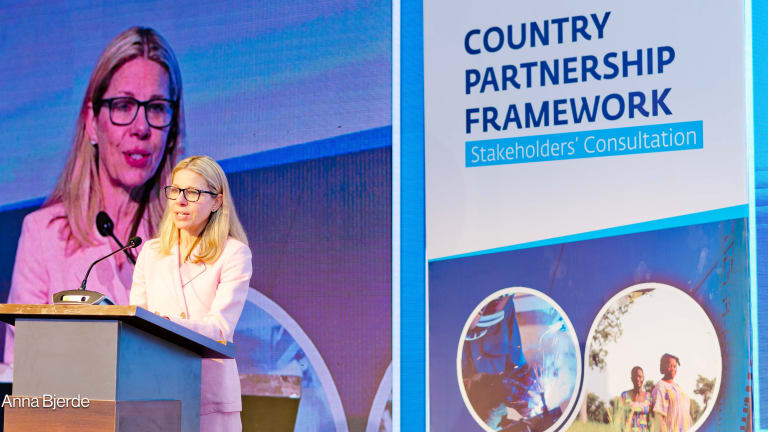The World Bank will advocate unbalanced but inclusive development going forward, conforming to the controversial conclusion of its 2009 World Development Report.
"Economic growth is seldom spatially balanced," said Indermit Gill, a World Bank chief economist for Europe and Central Asia who spearheads the annual report, at a Jan. 12 forum in Manila. "It actually comes in a very concentrated form. The world is not flat. It is very, very bumpy. And it's very bumpy whether you look at small provinces, big countries or the world overall."
The report is challenging policy strategies seeking to evenly distribute economic production across a country in order to diffuse economic benefits.
"Economic growth will be unbalanced. To try to spread out economic activity is to discourage it," the report, released in November, argues. "But development can still be inclusive, in that even people who start their lives far away from economic opportunity can benefit from the growing concentration of wealth in a few places.
"The way to get both the benefits of uneven growth and inclusive development is through economic integration," it emphasizes.
Consider Tokyo, the biggest city in the world, where 35 million of 120 million Japanese are packed in an area no bigger than 4 percent of the entire country.
Then there is the U.S., the world's largest economy, which see 35 million people change residences annually, making it perhaps also the world's most mobile region.
Another highly prosperous region, Western Europe, is also the most connected continent today since member countries trade 35 percent of their gross domestic product - more than half - among neighbors.
Similar developments are appearing in fast-growing Asia. In Mumbai, for instance, about 30,000 people are packed per square kilometer, making it the most densely populated city, and China is now the most "mobile" developing country, with 60 million migrant workers since the lunar new year in 2006.
The World Bank report is promoting geographic transformations in three areas: higher densities as seen in the growth of cities, shorter distances as workers and businesses migrate closer to density, and fewer divisions as countries enter world markets to take advantage of scale and specialization.
Gill said successful developers capitalize on these bumpy landscapes by promoting more equal living standards across a country, ergo achieving a smooth social landscape. He stressed the importance of having common institutions all over a country to make mobility easier, especially towards areas where economic opportunities arise.
"The willingness of a people to move and the ability of a government to facilitate these movements actually tend to make growth much more pro-poor," he said.
Chorching Goh, senior economist at the poverty reduction and economic management unit in Europe and Central Asia, said the World Bank expects good projects in human development to be "spatially blind," meaning the entire country stands to benefit.
An example is Africa, where Goh said the bank has been successful in advising countries to design human development projects along these lines over the last 10 years. Infrastructure projects supported by the bank in the region, however, have tended to be "diluted," she acknowledged.
"We thought there could be improvement on our side on advising, thinking and designing infrastructure policy for Africa," Goh said.
Indeed, the bank will be actively promoting the report's message. In fact, Gill has made the rounds in Western Europe, Northeast Asia and Latin America, and is now on a tour of Southeast Asia.
Bert Hofman, World Bank country director for the Philippines, will certainly be championing the three Ds - density, distance and division - here.
"Our role is to advocate the message. [It's] quite a new message, a bit different from what the policies are in the Philippines right now where there is a lot of emphasis on equality in economic activity," he said. "This report says, you may want to rethink that."








